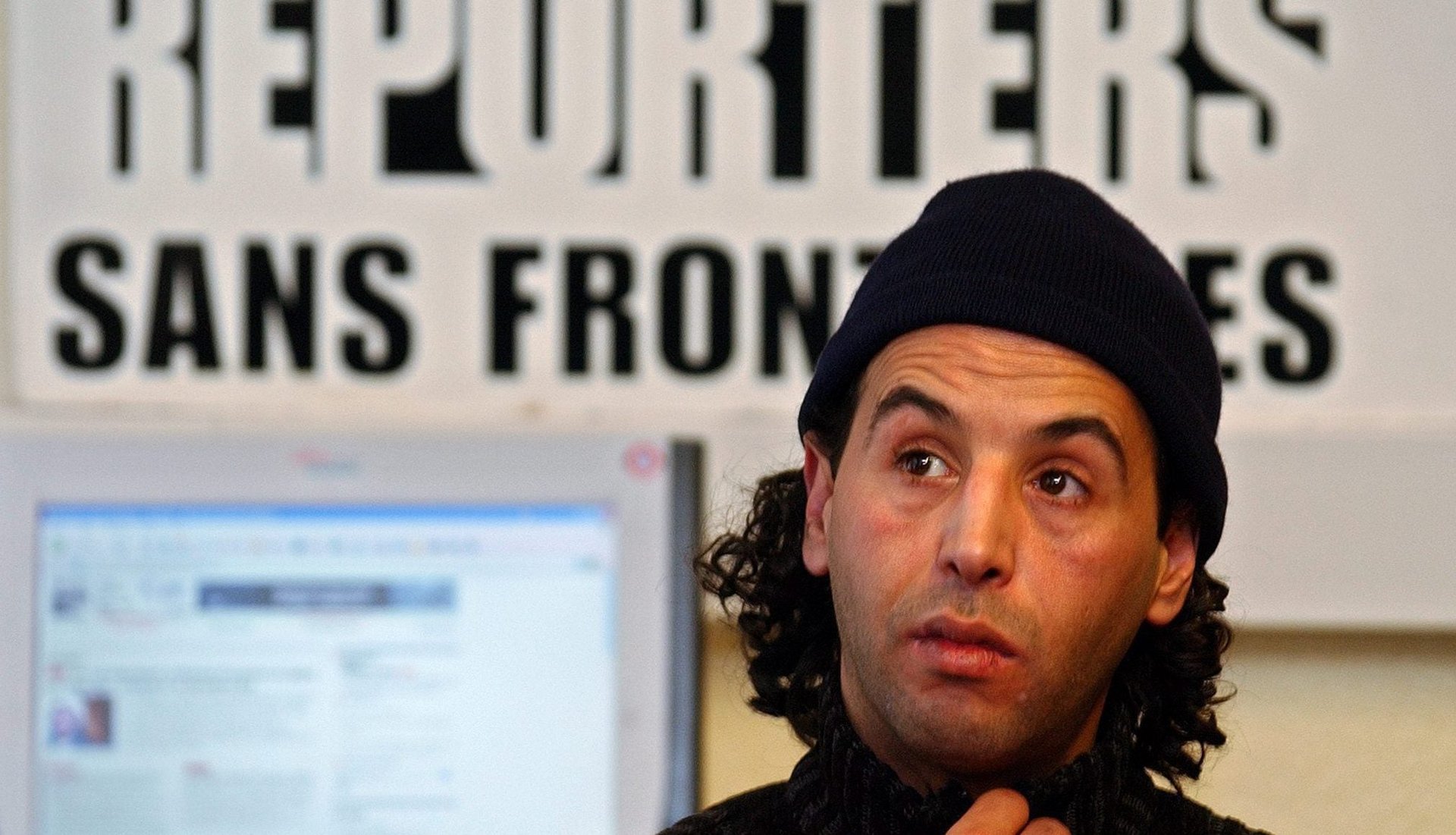Tunisia is celebrating a “martyr” of internet freedom with commemorative postage stamps
Tunisia has released two postage stamps celebrating internet freedom and commemorating the life of Zouhair Yahyaoui, the online political activist considered a “martyr” for the freedom of internet expression. The country’s postal service released the stamps on the National Day of Internet Freedom (March 13), a day instituted in 2012 by then president Moncef Marzouki in honor of Yahyaoui.


Tunisia has released two postage stamps celebrating internet freedom and commemorating the life of Zouhair Yahyaoui, the online political activist considered a “martyr” for the freedom of internet expression. The country’s postal service released the stamps on the National Day of Internet Freedom (March 13), a day instituted in 2012 by then president Moncef Marzouki in honor of Yahyaoui.
The award-winning blogger and internet activist died on that date in 2005, after spending 18 months in jail. Shortly after graduating from college, Yahyaoui established TUNeZine, an e-magazine that delivered damning reports and satirical commentary about government censorship and brutality.
When the government of now-deposed Zine El-Abidine Ben Ali took notice, it imprisoned Yahyaoui, who faced torture, ill-treatment, and endured hunger strikes. Though he died of a heart attack after his release, his death was reportedly precipitated by the brutal treatment he faced in prison.
“His story is about giving away his freedom to guarantee the freedom of the internet,” Abdelkarim Benabdallah, a blogger, and social media activist told Quartz. Zouhair, he says, “was really a hero at a time when everybody was cowardly hiding.”
Tunisia is the birthplace of the Arab Spring and the source of the social media-emboldened protests that toppled dictators across the Arab world. A video showing the self-immolation of fruit vendor Mohamed Bouazizi inspired many citizens to demand change not only in Tunisia but in Egypt and Libya as well.
Since president Ben Ali was forced out in Tunisia, the state of internet freedom has largely improved; almost 50% of the population now have access. Yet, slow reforms to the country’s legal environment have continued to pose a threat to online privacy. Freedom House, the US-based advocacy group, scores Tunisia as partly free when it comes to free expression online.
The worrying trend was exacerbated by the passing of a counterterrorism law following deadly attacks on tourists. Activists say the law grants broad surveillance powers to the government and sacrifices democratic rules for safety purposes. The proposition of a new electronic chip ID card also has digital activists worried over how personal data will be used by the state.
Benabdallah says that the launch of the stamps is a way to recognize the work of Yahyaoui and caution future generations. “Freedom is not granted,” he said. “If Zouhair would have a voice today, he would say, ‘You have to keep on the fight because nothing is guaranteed.’”